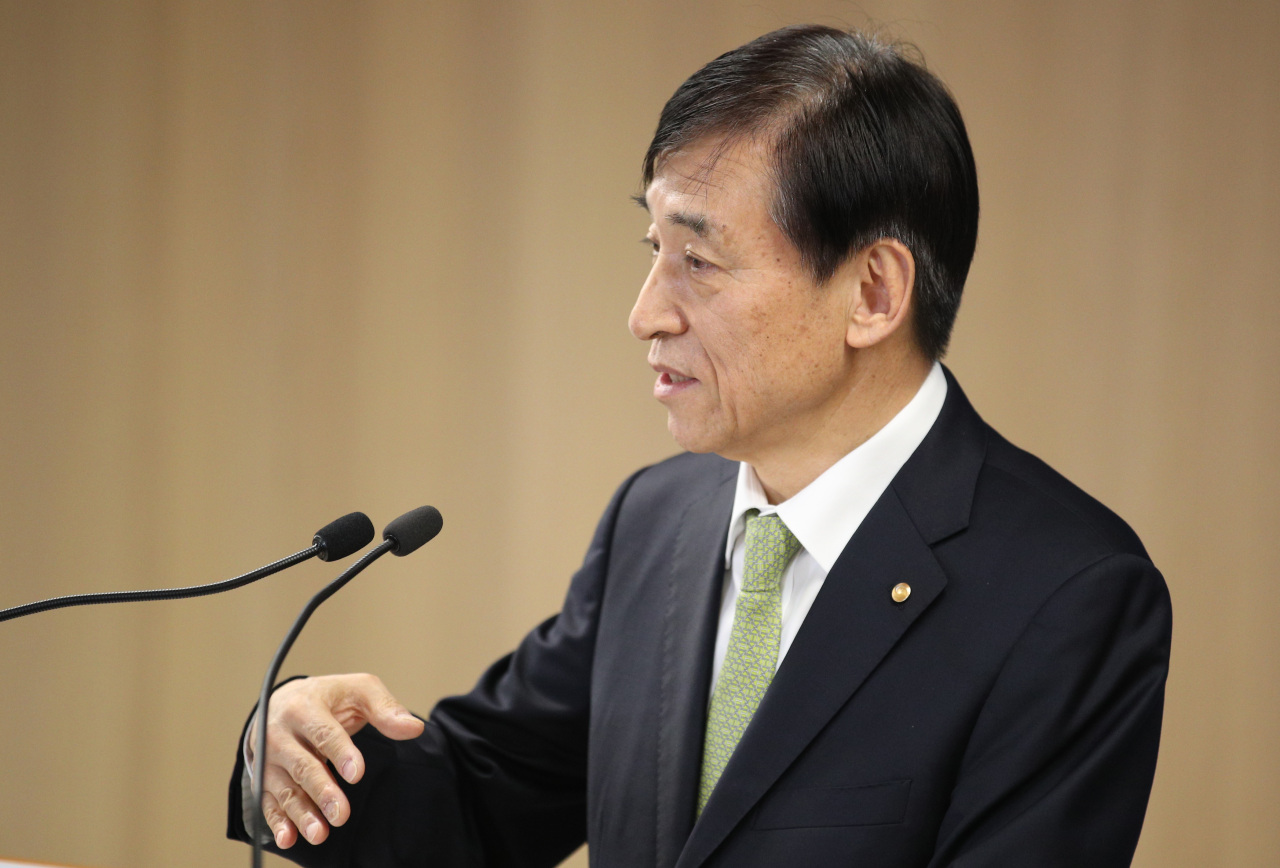 |
BOK Gov. Lee Ju-yeol (Yonhap) |
South Korea’s central bank is awaiting government signoff on an emergency program that would extend loans to nonbanking institutions, sources said Sunday, as both monetary and fiscal authorities aim to further funnel liquidity into the markets to counter the effects of the novel coronavirus.
“We are currently preparing to launch an emergency lending program as swiftly as possible,” a Bank of Korea official said.
The program -- which is expected to mirror actions taken by the US Federal Reserve -- requires support from the government and the National Assembly, as the BOK is legally prohibited from purchasing debts that are not government-backed. The US Fed, meanwhile, only needs approval from the country’s treasury secretary to carry out such programs.
The BOK has been strongly hinting at the launch of the program, which would allow the central bank to accept corporate debts as collateral and extend loans to debt issuers such as brokerages.
Like the US Fed, the BOK is likely to set up a special-purpose vehicle, which works as a form of shadow bank and provides a cushion for the central bank’s creation of funds. It also manages the pool of assets that flow in through the loan program on behalf of the central banks.
BOK Gov. Lee Ju-yeol said Thursday, “Establishing an SPV under the government’s security, like the US Fed, is extremely effective.”
He added that bringing about market stability through the government’s credit enhancement, like the US Fed’s cooperation with the Treasury, is an effective way as well.
Industry watchers expect the details of the plan to be unveiled by April 20, when the terms of four of seven of the BOK’s incumbent monetary board members expire. Each member serves a four-year term upon taking the role.
The program would mark the first of its kind if it materializes. The BOK extended loans to nonbanking entities during the 1997 Asian Financial Crisis, but it wasn’t as directly involved as it would be under its current plan. At the time, it extended loans to the Korea Securities Finance Corp., a securities financing services firm and a credit management fund, and handed them control over the program. The credit management fund later merged with other institutions to create the Financial Supervisory Service.
The emergency program aims to work as a preemptive measure to prevent further volatility stemming from COVID-19 rattling local financial markets, as it has done in early stages.
“Though market uncertainties (involving corporate bonds and commercial papers) have now calmed, there is a possibility that the local financial market may become volatile again due to the progress in the latest pandemic and changes brought on by it to the global financial market,” Lee noted at Thursday’s press briefing.
The US Fed recently announced a fresh $2.3 trillion round of loans that include further support for small businesses and consumers, and even states, cities and municipalities for the first time.
The BOK recently held its policy rate at a record-low 0.75 percent, while announcing a dampened economic outlook. Since last month, it has carried out an emergency rate cut and moves to inject unlimited liquidity into the market via repurchase agreements.
The government also plans to submit a second extra budget worth 7.1 trillion won ($5.86 billion) to the parliament soon.
(
mkjung@heraldcorp.com)








